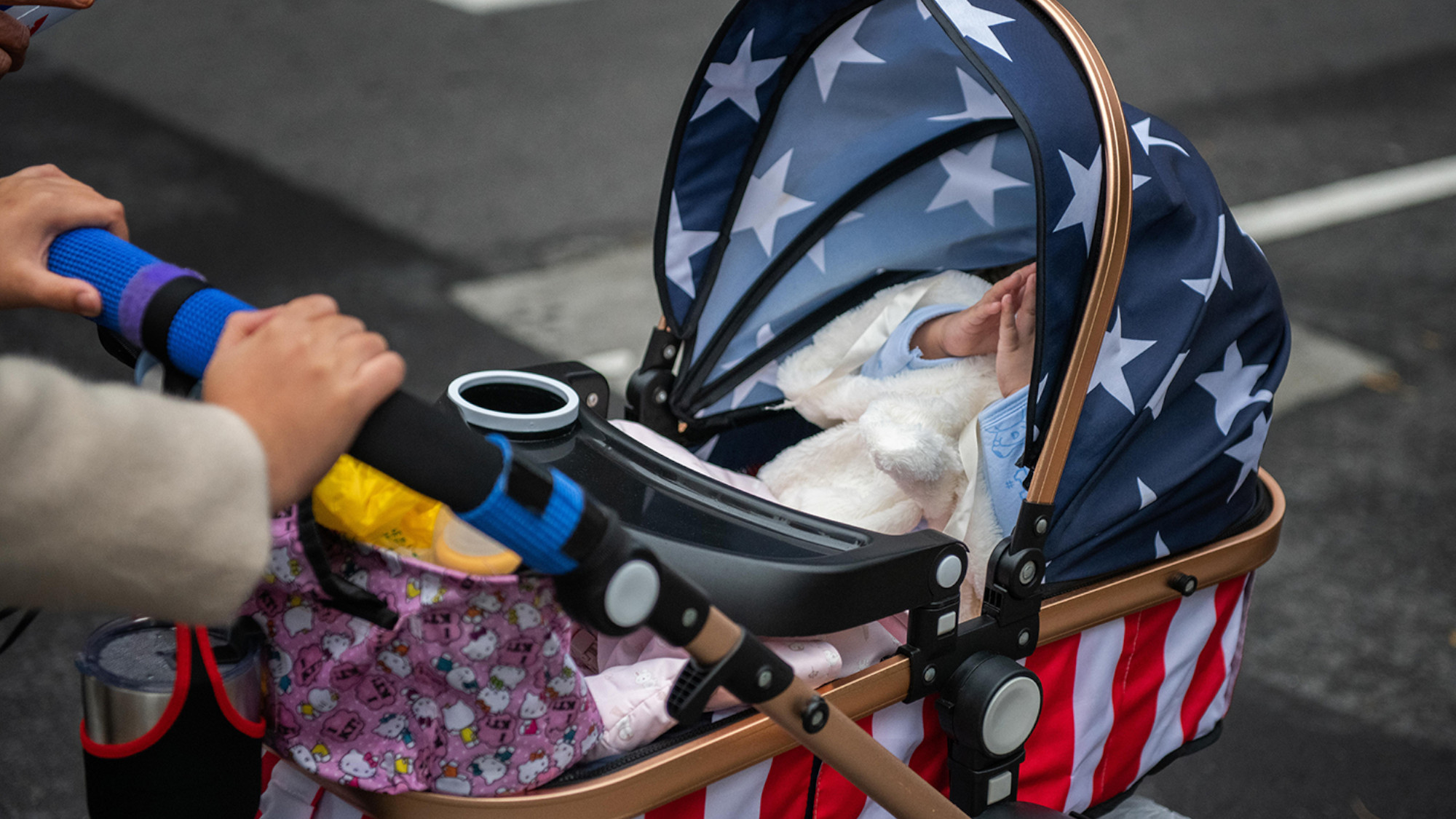Baby bonus: Can Trump boost the birth rate?
The Trump administration is encouraging Americans to have more babies while also cutting funding for maternal and postpartum care

A free daily email with the biggest news stories of the day – and the best features from TheWeek.com
You are now subscribed
Your newsletter sign-up was successful
President Trump wants Americans to have more babies—and he's willing to pay them to reproduce, said Michelle Goldberg in The New York Times. With Vice President JD Vance and other social conservatives leading the pro-natalist charge, the administration is considering several policies designed to raise the fertility rate, including giving women a $5,000 bonus for every birth, providing financial aid for IVF treatments, and reserving 30 percent of Fulbright scholarships for married people or parents. Trump last week said the baby bonus "sounds like a good idea." Declining fertility is a real problem globally, creating elderly societies without enough workers to sustain the social safety net. The U.S.'s fertility rate fell in 2023 to a historic low of 1.62 births per woman. But the right-wing "natalist milieu is rife with misogyny, white supremacy, and eugenics," and promotes traditional gender roles, with stay-at-home moms getting stuck with "all the domestic drudgery." For that reason, Trump's paternalistic pro-natalism "is doomed to fail."
This is a rare Trump idea that's not "deranged, illegal, or immoral," said Mona Charen in The Bulwark. But the same administration that insists on the need for more future workers treats immigration "as a mortal threat." When Trump encourages parenthood but demonizes immigrants, it's clear he wants "more white babies." To truly incentivize having children, said Bethany Mandel in the New York Post, we need "durable policy change" and a pro-family cultural shift. As a conservative mother of six, I know too well that $5,000 feels like a "pat on the head as families struggle to stay afloat amid rising costs." But several House Republicans have proposed easing the burden by boosting the Child Tax Credit from $2,000 to $4,200 per year for kids under 6 and $3,000 for older children. Kids aren't a "one-time cost, but a long-term commitment."
Why, then, are Republicans also pushing "anti-baby policies"? asked Mary Ellen Klas in Bloomberg. They're considering major Medicaid cuts that will hurt women, while DOGE has slashed funding for maternal and postpartum care. In the end, however, parenthood isn't just a financial decision. "It's also a profound act of hope"—and Americans aren't "feeling especially hopeful." They're worried about Trump's economic and political chaos and where a bitterly divided country is headed. Given all that, "asking young people to forget all their troubles and bring children into the world" is "not just ironic—it's irresponsible."
The Week
Escape your echo chamber. Get the facts behind the news, plus analysis from multiple perspectives.

Sign up for The Week's Free Newsletters
From our morning news briefing to a weekly Good News Newsletter, get the best of The Week delivered directly to your inbox.
From our morning news briefing to a weekly Good News Newsletter, get the best of The Week delivered directly to your inbox.
A free daily email with the biggest news stories of the day – and the best features from TheWeek.com
-
 The Olympic timekeepers keeping the Games on track
The Olympic timekeepers keeping the Games on trackUnder the Radar Swiss watchmaking giant Omega has been at the finish line of every Olympic Games for nearly 100 years
-
 Will increasing tensions with Iran boil over into war?
Will increasing tensions with Iran boil over into war?Today’s Big Question President Donald Trump has recently been threatening the country
-
 Corruption: The spy sheikh and the president
Corruption: The spy sheikh and the presidentFeature Trump is at the center of another scandal
-
 ‘The forces he united still shape the Democratic Party’
‘The forces he united still shape the Democratic Party’Instant Opinion Opinion, comment and editorials of the day
-
 Kurt Olsen: Trump’s ‘Stop the Steal’ lawyer playing a major White House role
Kurt Olsen: Trump’s ‘Stop the Steal’ lawyer playing a major White House roleIn the Spotlight Olsen reportedly has access to significant US intelligence
-
 ‘Those rights don’t exist to protect criminals’
‘Those rights don’t exist to protect criminals’Instant Opinion Opinion, comment and editorials of the day
-
 Trump’s EPA kills legal basis for federal climate policy
Trump’s EPA kills legal basis for federal climate policySpeed Read The government’s authority to regulate several planet-warming pollutants has been repealed
-
 House votes to end Trump’s Canada tariffs
House votes to end Trump’s Canada tariffsSpeed Read Six Republicans joined with Democrats to repeal the president’s tariffs
-
 Bondi, Democrats clash over Epstein in hearing
Bondi, Democrats clash over Epstein in hearingSpeed Read Attorney General Pam Bondi ignored survivors of convicted sex offender Jeffrey Epstein and demanded that Democrats apologize to Trump
-
 ‘The mark’s significance is psychological, if that’
‘The mark’s significance is psychological, if that’Instant Opinion Opinion, comment and editorials of the day
-
 Judge blocks Trump suit for Michigan voter rolls
Judge blocks Trump suit for Michigan voter rollsSpeed Read A Trump-appointed federal judge rejected the administration’s demand for voters’ personal data